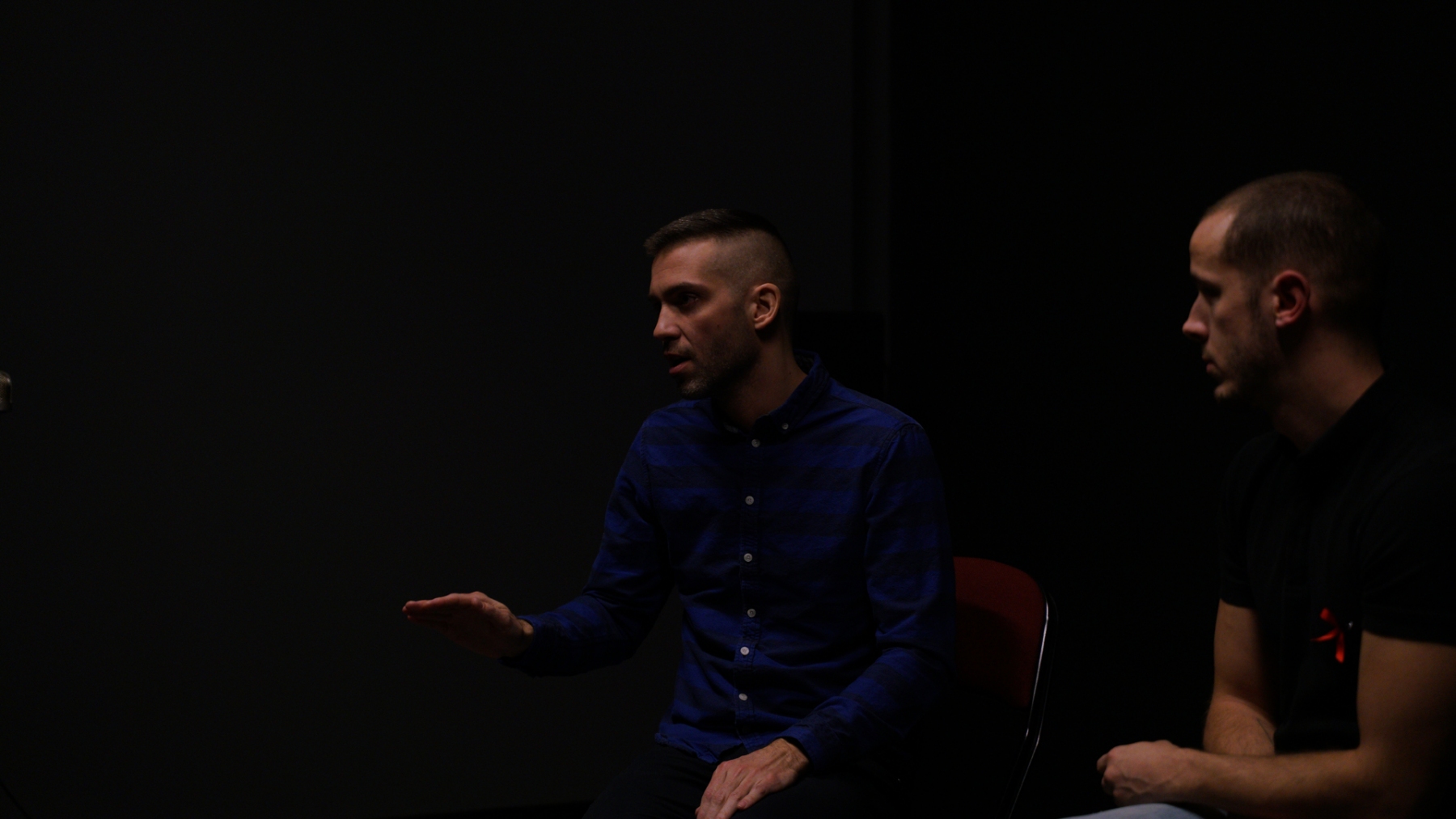From November 27th – December 1st, 2018, Knot Project Space functioned as The Common Cinema, a small-scale community theatre which presented five consecutive evening screenings, each in collaboration with a different partner organisation: The Transgender Media Portal at Carleton University, Kind Space Ottawa, Cinema Politica, MAX Ottawa and Visual AIDS. Free and open to the public, these screenings presented works that utilise various formal strategies to address a set of urgent concerns – transgender rights, environmental sustainability, gentrification, decolonisation and the ongoing AIDS crisis. With each community partner presenting their screenings in their own terms, and in some cases facilitating in-depth follow-up discussions about the works, this temporary cinema explored the moving image as a mode of generating collective resistances world-makings, holding the complexities of contemporary struggles in common.
N O V . 2 7
An Evening of Trans Cinema presented by Transgender Media Portal at Carleton University.
The Transgender Media Portal Project is a SSHRC-funded project operating through Carleton University that endeavours to create a collaborative online database of trans, Two Spirit, nonbinary, intersex, and gender-nonconforming filmmakers and their works. This screening served as an opportunity to enjoy a sample of those works and to interact with others who share an interest in trans cinema. The event began with a brief introduction by project leader Dr. Laura Horak and research assistant Noah Rodomar, followed by the screenings, and then concluded with an open discussion or reception where guests could share their thoughts and learn more about the project.
N O V . 2 8
My Community is Here presented by Kind Space
My Community is Here is a meditation on the importance of communities of care, what is at stake when they are uprooted, and the work necessary to keep them together. People impacted by mass evictions in Herongate – one of the most diverse and affordable neighborhoods in Ottawa – are interviewed in this documentary short on an important local issue. This film was produced in the Back Story Program for LGBTQ2S+ youth, which offered training in video production and post-production. The program ran in October 2018 at SAW Video in partnership with Kind Space and was made possible thanks to support from the Ontario Trillium Foundation.
N O V . 2 9
After Horizons, Pixie Cram, Matthieu Hallé, and Andrés Salas presented by SAW Video and Cinema Politica
The first of two evenings of screenings presented in partnership with Cinema Politica, After Horizons was a program featuring works by two SAW Video members: Pixie Cram’s premiere of her new short film Pragmatopia, and Matthieu Halle’s film experiment Apartment No. 2. Also joining them was Andre Salas, whose film We Could Have Been Heroes was produced through Cinema Politica’s commissioning program The Next 150: Documentary Futurism. These formally varied works examine contemporary concerns through a dystopic lens, each navigating the terrain of a world on the other side of collapse.
N O V . 30
Selections from ‘The Next 150: Documentary Futurism’ presented by Cinema Politica
The Documentary Futurism programme offered a wide range of formal approaches and topics, from mesmerizing site-specific performances to imaginative aesthetic interfaces, from queer sexuality to decolonization. Forward-looking and deeply political, each film brought an innovative and distinctive approach to documenting that which has yet to occur.
D E C . 1
Alternate Endings, Activist Risings presented by Visual AIDS and MAX Ottawa
Alternate Endings, Activist Risings highlights the impact of art in AIDS activism and advocacy today by commissioning compelling short videos from six inspiring community organizations and collectives—ACT UP NY, Positive Women’s Network, Sero Project, The SPOT, Tacoma Action Collective, and VOCAL NY. The program represents a wide range of organizational strategies, from direct action to grassroots service providers to nation-wide movement building, while considering the role of creative practices in activist responses to the ongoing AIDS crisis.
